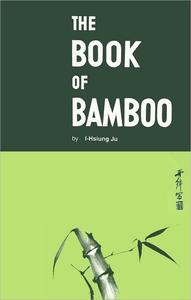
Free Download The Book of Bamboo by I-Hsiung Ju
English | December 20, 2016 | ISBN: 9780977059874, ASIN: B01MT1ET10 | True EPUB | 200 pages | 22.7 MB
The first step in Chinese brush painting is learning the technique. From the days of their common origin, Chinese painting and Chinese writing have been allied arts. They use the same equipment and share aims, techniques, and standards. This instructional book for Chinese brush painting on bamboo includes an introductory of appreciation of Chinese calligraphy and painting, and the equipment and supplies, the basic exercise on painting bamboo trunks, branches, and leaves, and the basic composition of a bamboo painting. Illustration and instruction work together side by side for general readers as well as painting students.
The Book of Bamboo is designed as a step by step procedure to enable the student to learn technique in a more detailed and organized manner. It is a practical handbook for the student of Chinese brush painting. It starts with an outline of the appreciation of Chinese Calligraphy. In the oldest written sources, tracings in the nature of emblems, in connection with divination were used to serve as Words (). When those words came to mean the language of a poet, they still remained in pictorial forms, but on the other hand, when they came to mean the real "forms" in painting, they retained some of the earlier sense of "semblances" and "emblems" which nicely defined their function in a composition.
Next, Professor Ju explains the use of the basic tools for Chinese brush painting – the ink stone, the ink stick, the brush, and the paper. These treasures are considered as priceless holy things and are treated with reverence and respect. In Part II, he demonstrates the basic formations of stem, knots, branches and leaves, and dealt with each of them as a sole pattern.
Finally, in Part Ill, Grouping of Stems, Branches and Leaves, Professor Ju explains how to paint more than one stem together for the primary composition of a bamboo painting, how to group branches for those stems and lastly, how to put clusters of leaves which are all related to them. According him, the first principle of a bamboo composition is, the four parts of the plant should be considered in the following order: stem, knot, branches and leaves.
